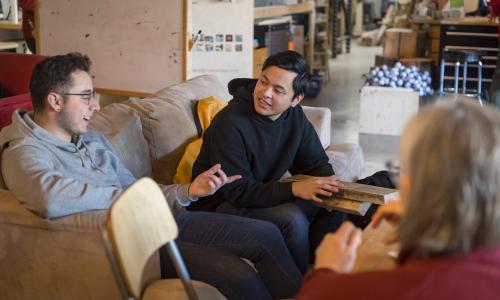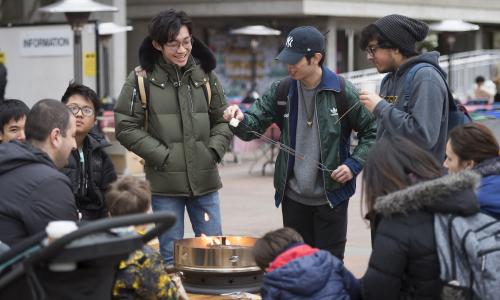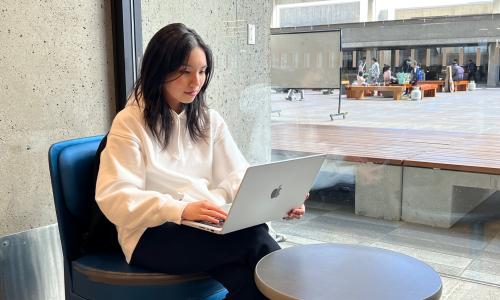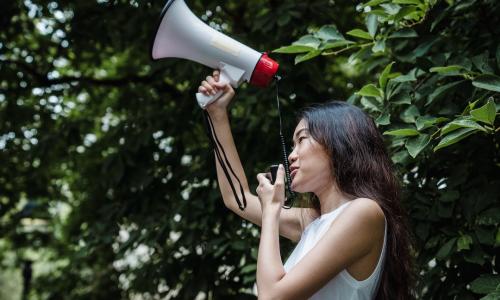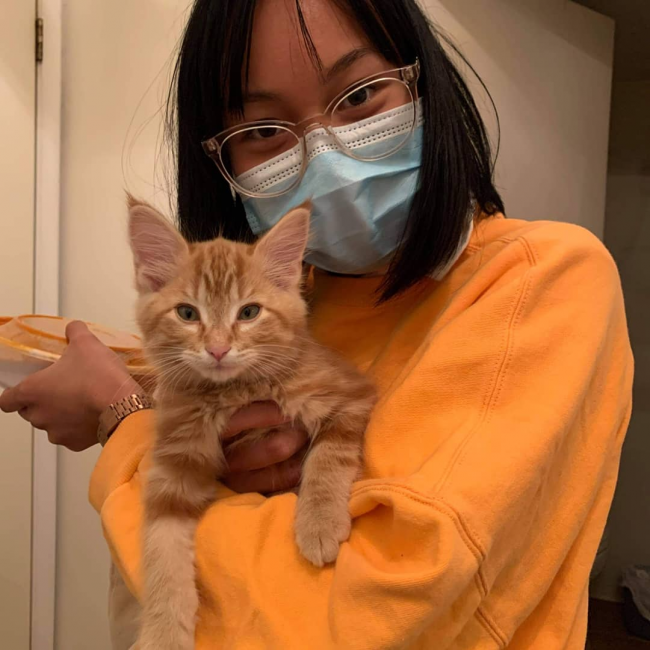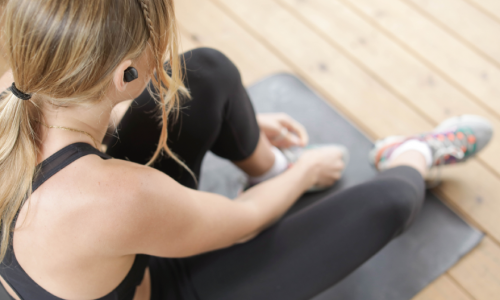Join us in learning to appreciate differences, practicing gratitude, and finding meaningful connections in your community for a richer sense of well-being. Remember, it's okay to seek additional support when needed.
SFU Health and Counselling Services
Explore how the SFU Health & Counselling Team collectively and postively influences student health and well-being at SFU and beyond by providing services and resources. Learn more by visiting the Health & Counselling (HCS) website.
Your physical health is closely linked to mental health, from managing screen time to fostering good sleep hygiene. Explore tips to support different aspects of your physical health and find ways to prioritize your overall well-being as a student.
You have lots of followers online, but can’t seem to connect the same way IRL.
Your mental health is important, and if you need support, connect with Health & Counselling for a counselling consultation appointment and to feel supported and guided through the many different services and professionals available
Taking classes in the summer can present some unique challenges. With warmer weather, exciting events, and endless opportunities for fun, it's easy to get swept away in distractions. Finding a balance between academic responsibilities and personal well-being is important. Here are 4 ways to help you prioritize so you can balance and enjoy everything the season has to offer:
Jennifer Reandy is a Registered Clinical Counsellor (RCC) working with SFU’s Indigenous Student Centre (ISC). Read about the common thinking patterns associated with anxiety and how to interrupt them.
What can healthy activism look like? See what registered clinical counsellors have to say about navigating activism burnout.
Gain information on the myriad of sexual health services available to members of the SFU community.
The Health Peers share some books that have helped with self-growth, healing, and forming good habits.
Sex positivity includes the agency to decide whether to have sex. Check out these tips on discussing abstinence with partners.
There's always a chance to be lonely at university, especially if you're just starting out. Read this piece written by the Health Peers about how to embrace it and reach out.
Sharing tips for good mental health practices is essential for building both a helpful community and a better future for yourself. Read SFU Health and Counselling's tips for being more present in the moment.
Counselling has a lot of benefits, but it is a human relationship, and sometimes a counsellor you meet may not be the right fit - and that's okay.
Wondering how to land a co-op job that you enjoy with no experience? Volunteer! My volunteer experience with the SFU Health Peers translated into a co-op job with the Canadian Mental Health Association. Keep reading to find out how volunteering can lead to a full-time job!
You may be trying to balance your academic life with your hobbies and work. Feeling burned out is normal when trying to balance your life but you might not want to stop working hard because you built up momentum and still want to reach your goals. Christy knows first-hand how hard this can be. Find out how Christy worked through those struggles and prioritized her well-being while pursuing her dreams.
We often forget that breathing is one of the most important things that we do in our daily lives. It is our constant reminder that we are alive. So take some time out of your day and discover what it means to breathe.
From an early age, we were taught to thank the people around us whenever we receive help or support, but we often forget to thank ourselves. Here are some healthy habits of gratitude that might help with finding the happiness and contentment we've all been searching for.
Finding our way through adversities and challenges can definitely be a stressful mission. But it is important to remember that "humans are resilient." Here are some strategies to help practice resilience in your day-to-day journey of personal growth and ways on how we can thrive in life's storms.









